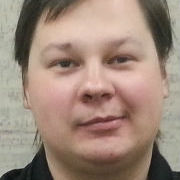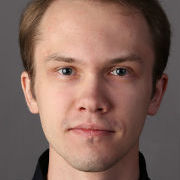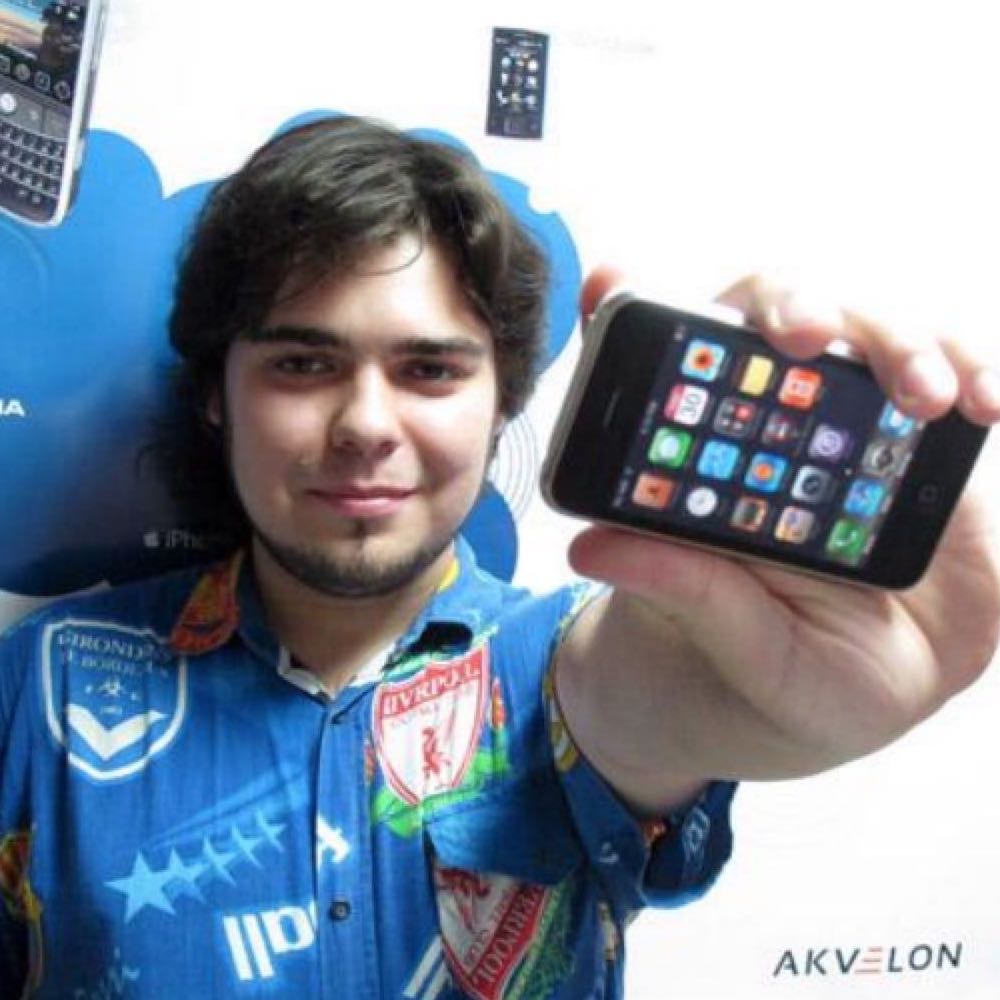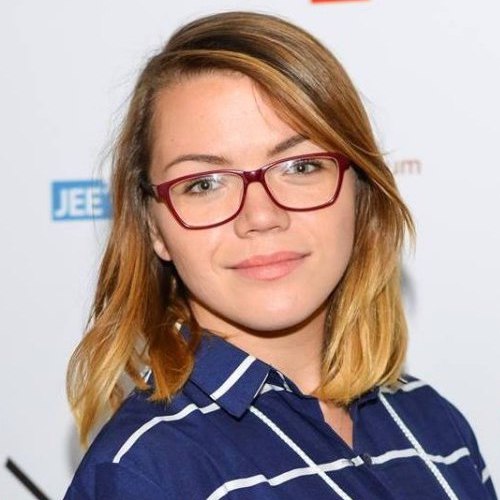How to grow from a junior tester into a good tester? Continuation
Where to learn beginner testers is more or less clear to everyone: there are many articles, courses, books and manuals. But what to do to those who grew up from June to Middle is unclear. On the eve of the DUMP conference , we asked experienced testers what they would advise to the juniors who want to grow.
The first to answer our questions was the “grandfather of Russian testing” Alexander Alexandrov. In this post, they shared their opinions: Head of Testing at SKB Kontur Maxim Zakharov, Senior QA Engineer at Exadel, RSTQB member Ilya Vakhrushev, Tester at Badoo Arseny Batyrov and an expert in test automation and engineering practice trainer at Alpha Laboratory Anastasia Aseeva.


After what event does a june stop being jung and become a tester?
In the standard “Tester in the Contour” I described it like this: “Without control with the required quality, it performs all the standard tasks of the tester in the project. The team trusts the results of work. Rechecking is not required. With older comrades, I formulated my plan for the year. ”
')
For myself, I formulate: at the moment when it stops doing what they say, and starts doing what it needs.
But this question is not so interesting as “After what event does the middle become senor?”
How much did the team influence your development as a tester?
I already wrote about this . The decisive role in who I am and what I do is played not so much by the team, but by the specific people with whom it is worth working and for which sometimes it is worth changing a team and even a company. These were not always testers.
There are a lot of courses and materials for beginning testers, and what to do “continuing?” How to find really good conferences and events?
If you are a beginner, then you managed to attend one or several conferences. If you want to be continued - something has hooked you on them and in the profession. Go to the conference as a speaker and then as an organizer. I liked this road. In Yekaterinburg, you can either directly contact the organizers of the entire DAMP, or get on the DAMP through the community , which creates a testing section at this conference.
You are a tester, you trade information, which means you can search. Who do you study from? Who do you want to work with? Where and with whom do these people communicate? A conference is more than a list of reports.
An experienced cool tester of your dreams. How do you know him from a thousand?
Violent loyalty and interest in the profession, greed for new information and readiness to argue and prove, agree and search for new. In general, they are not indifferent to the business you serve.
What would you do if not testing?
Would make a career in the army, they say, you can kill people there.

After what event does a june stop being jung and become a tester?
It is difficult to select a specific event, but at the same time, the changes are quite dramatic. A person presses a button, finds errors, asks himself why he missed one or another. And soon there is a click in the head, after which a certain idea of “quality” is formed and the question of what influences it. The appearance of this awareness, I would call a turning point.
How much did the team influence your development as a tester?
My first team did a lot so that I did not get bored with testing - for which I am very grateful to her. It gave the opportunity to apply critical thinking in a variety of situations, not drowned in the routine of tasks. With the rest of my colleagues, no less lucky - someone helps to solve problems, someone points to new ones.
There are a lot of courses and materials for beginning testers, and what to do “continuing?” How to find really good conferences and events?
A great way to learn to understand this is to take part yourself. Lack of organizational skills or lack of any competencies is not a hindrance. One has only to try and there is a bunch of people willing to help - tested by personal experience.
In general, the training of "leading" specialists should be proactive and versatile. Even if you want to develop in a particular area, it is worth occasionally wondering what your peers are doing. A good help in this will be the surrender of ISTQB - you will develop a common vocabulary for communicating with colleagues, you will find gaps in your knowledge or topics that are worth working on.
An experienced cool tester of your dreams. How do you know him from a thousand?
We accidentally intersect at the conference and discuss the topic of the most dismal report until the organizers start expelling us.
What would you do if not testing?
I would go to science. Or maybe he would be a carpenter or a street artist.

After what event does a june stop being jung and become a tester?
Junior is, of course, also a tester. Moreover, the middle of a small company can be a juna in a more serious place. This, if anything, personal experience. I don't think there is any event that turns a junior into a middle. Rather, it is a long process in which a person learns the basics of testing, understands the product and learns to work in a team. Conventionally, June becomes a middle when it can independently and without outside help solve problems within its competencies.
How much did the team influence your development as a tester?
I have never singled out a team as an important quantity, but I perfectly understand that all my skills and abilities were formed only thanks to the people around me. And from each company I worked for, I took something new: in Akvelon, I was taught to test from scratch and gave me a passion for my business, at HF Labs I looked at the small details with everyone, learned responsibility for the tasks and worked with customers, and in Badoo, I learned what real efficiency is.
There are a lot of courses and materials for beginning testers, and what to do “continuing?” How to find really good conferences and events?
This is the natural course of things. Beginners are a wider and more appreciative audience, it is easier and more profitable for them to write educational materials. I think with the development of the industry there will be more conferences, courses and meetings just for those who continue - you just need to create demand for it.
To choose a conference, I always ask myself the same question: what task does my visit to this event solve? If no, then I'm not going.
An experienced cool tester of your dreams. How do you know him from a thousand?
If I hire him? Complex issue. I had more than a dozen interviews, but I interviewed some cool specialists a couple of times. In addition to the knowledge of testing, such a specialist should be well versed in the market, have a systematic thinking and understand the value of the product for the client. I think a talk in one and a half to two hours will be enough to make sure that a person is sound.
What would you do if not testing?
What I already do - business. True, it is still associated with testing. A good approach is to integrate your expertise from two different areas of life. For example, I can speak well and understand something in IT. Much can already be learned from this. I have so far learned courses on testing mobile applications. But I don’t want to stop at that, I’ll be launching other projects in the near future.

After what event does a june stop being jung and become a tester?
From my own experience, I can say that June became a tester when he was not afraid to leave him alone with a team. That is, as a manager, I was confident that he was able to qualitatively test the software and the team trusted his opinion. And as long as I doubt his ability to design a test model, to understand the software being tested - for me it will remain a june.
If the review of the test model is successful for a couple of months, and a positive feedback is received from the team regarding the quality of the work, then the person is well pumped and it is incorrect to consider it a june.
How much did the team influence your development as a tester?
My first experience as a tester happened in a wonderful team, where there were a lot of developers, and I was the only tester. And my team believed in me so much that it pumped me in all directions: I began to understand web development, managed to carry out my first load testing in my life and even began to write autotests. In fact, they became the drivers of my professional development.
There are a lot of courses and materials for beginning testers, and what to do “continuing?” How to find really good conferences and events?
I am of the opinion that all engineers should be able to program. And that sooner or later, but the time will come when 90% of all testing will be automated. And as manual work, only UX testing and user interface testing will remain. Therefore, all the “followers” need to study PL and learn to write autotests. And if they already do this, then you can develop your developer skills. After all, the SDET (Software Developer in Test) position will be highly demanded soon.
To find good conferences, use Google. And I have good news: I launched a channel in the Telegram , where I add all the IT activities that caught my eye. In the future I plan to write for the bot channel, through which events will be added automatically.
An experienced cool tester of your dreams. How do you know him from a thousand?
Inquisitive, constantly developing person. Constantly studies something, in his free time he often “zadrotit”, because he is interested. In the industry trends.
What would you do if not testing?
Would become a developer. Or a pianist.
April 13 in Yekaterinburg there will be a conference of DUMP developers , which will traditionally have a section devoted to testing. In the program section: Arseny Batyrov (Badoo) will hold a workshop on automating mobile applications, Anastasia Aseeva (Alfa Laboratory) will tell you about team responsibility for quality, Maria Glukhova (Targem Games) about working with volunteers, Ivan Rumak (SKB Kontur) explains that security testing can offer testers, and Vladimir Likhtansky (Plesk) will teach how to test applications if they are not written by you.
Thanks to our partners, who make the conference possible: the general partner - Sberbank-Technology companies, conference partners: SKB Kontur , Naumen , Tinkoff.ru , ProSoft Sistems , Very Interesting , Skb_Lab .
The first to answer our questions was the “grandfather of Russian testing” Alexander Alexandrov. In this post, they shared their opinions: Head of Testing at SKB Kontur Maxim Zakharov, Senior QA Engineer at Exadel, RSTQB member Ilya Vakhrushev, Tester at Badoo Arseny Batyrov and an expert in test automation and engineering practice trainer at Alpha Laboratory Anastasia Aseeva.


Maxim Zakharov, Head of Testing at SKB Kontur
After what event does a june stop being jung and become a tester?
In the standard “Tester in the Contour” I described it like this: “Without control with the required quality, it performs all the standard tasks of the tester in the project. The team trusts the results of work. Rechecking is not required. With older comrades, I formulated my plan for the year. ”
')
For myself, I formulate: at the moment when it stops doing what they say, and starts doing what it needs.
But this question is not so interesting as “After what event does the middle become senor?”
How much did the team influence your development as a tester?
I already wrote about this . The decisive role in who I am and what I do is played not so much by the team, but by the specific people with whom it is worth working and for which sometimes it is worth changing a team and even a company. These were not always testers.
There are a lot of courses and materials for beginning testers, and what to do “continuing?” How to find really good conferences and events?
If you are a beginner, then you managed to attend one or several conferences. If you want to be continued - something has hooked you on them and in the profession. Go to the conference as a speaker and then as an organizer. I liked this road. In Yekaterinburg, you can either directly contact the organizers of the entire DAMP, or get on the DAMP through the community , which creates a testing section at this conference.
You are a tester, you trade information, which means you can search. Who do you study from? Who do you want to work with? Where and with whom do these people communicate? A conference is more than a list of reports.
An experienced cool tester of your dreams. How do you know him from a thousand?
Violent loyalty and interest in the profession, greed for new information and readiness to argue and prove, agree and search for new. In general, they are not indifferent to the business you serve.
What would you do if not testing?
Would make a career in the army, they say, you can kill people there.

Ilya Vakhrushev, Senior QA Engineer at Exadel, RSTQB member
After what event does a june stop being jung and become a tester?
It is difficult to select a specific event, but at the same time, the changes are quite dramatic. A person presses a button, finds errors, asks himself why he missed one or another. And soon there is a click in the head, after which a certain idea of “quality” is formed and the question of what influences it. The appearance of this awareness, I would call a turning point.
How much did the team influence your development as a tester?
My first team did a lot so that I did not get bored with testing - for which I am very grateful to her. It gave the opportunity to apply critical thinking in a variety of situations, not drowned in the routine of tasks. With the rest of my colleagues, no less lucky - someone helps to solve problems, someone points to new ones.
There are a lot of courses and materials for beginning testers, and what to do “continuing?” How to find really good conferences and events?
A great way to learn to understand this is to take part yourself. Lack of organizational skills or lack of any competencies is not a hindrance. One has only to try and there is a bunch of people willing to help - tested by personal experience.
In general, the training of "leading" specialists should be proactive and versatile. Even if you want to develop in a particular area, it is worth occasionally wondering what your peers are doing. A good help in this will be the surrender of ISTQB - you will develop a common vocabulary for communicating with colleagues, you will find gaps in your knowledge or topics that are worth working on.
An experienced cool tester of your dreams. How do you know him from a thousand?
We accidentally intersect at the conference and discuss the topic of the most dismal report until the organizers start expelling us.
What would you do if not testing?
I would go to science. Or maybe he would be a carpenter or a street artist.

Arseny Batyrov, Tester in Badoo
After what event does a june stop being jung and become a tester?
Junior is, of course, also a tester. Moreover, the middle of a small company can be a juna in a more serious place. This, if anything, personal experience. I don't think there is any event that turns a junior into a middle. Rather, it is a long process in which a person learns the basics of testing, understands the product and learns to work in a team. Conventionally, June becomes a middle when it can independently and without outside help solve problems within its competencies.
How much did the team influence your development as a tester?
I have never singled out a team as an important quantity, but I perfectly understand that all my skills and abilities were formed only thanks to the people around me. And from each company I worked for, I took something new: in Akvelon, I was taught to test from scratch and gave me a passion for my business, at HF Labs I looked at the small details with everyone, learned responsibility for the tasks and worked with customers, and in Badoo, I learned what real efficiency is.
There are a lot of courses and materials for beginning testers, and what to do “continuing?” How to find really good conferences and events?
This is the natural course of things. Beginners are a wider and more appreciative audience, it is easier and more profitable for them to write educational materials. I think with the development of the industry there will be more conferences, courses and meetings just for those who continue - you just need to create demand for it.
To choose a conference, I always ask myself the same question: what task does my visit to this event solve? If no, then I'm not going.
An experienced cool tester of your dreams. How do you know him from a thousand?
If I hire him? Complex issue. I had more than a dozen interviews, but I interviewed some cool specialists a couple of times. In addition to the knowledge of testing, such a specialist should be well versed in the market, have a systematic thinking and understand the value of the product for the client. I think a talk in one and a half to two hours will be enough to make sure that a person is sound.
What would you do if not testing?
What I already do - business. True, it is still associated with testing. A good approach is to integrate your expertise from two different areas of life. For example, I can speak well and understand something in IT. Much can already be learned from this. I have so far learned courses on testing mobile applications. But I don’t want to stop at that, I’ll be launching other projects in the near future.

Anastasia Aseeva, expert in test automation and engineering practice trainer at Alpha Laboratory
After what event does a june stop being jung and become a tester?
From my own experience, I can say that June became a tester when he was not afraid to leave him alone with a team. That is, as a manager, I was confident that he was able to qualitatively test the software and the team trusted his opinion. And as long as I doubt his ability to design a test model, to understand the software being tested - for me it will remain a june.
If the review of the test model is successful for a couple of months, and a positive feedback is received from the team regarding the quality of the work, then the person is well pumped and it is incorrect to consider it a june.
How much did the team influence your development as a tester?
My first experience as a tester happened in a wonderful team, where there were a lot of developers, and I was the only tester. And my team believed in me so much that it pumped me in all directions: I began to understand web development, managed to carry out my first load testing in my life and even began to write autotests. In fact, they became the drivers of my professional development.
There are a lot of courses and materials for beginning testers, and what to do “continuing?” How to find really good conferences and events?
I am of the opinion that all engineers should be able to program. And that sooner or later, but the time will come when 90% of all testing will be automated. And as manual work, only UX testing and user interface testing will remain. Therefore, all the “followers” need to study PL and learn to write autotests. And if they already do this, then you can develop your developer skills. After all, the SDET (Software Developer in Test) position will be highly demanded soon.
To find good conferences, use Google. And I have good news: I launched a channel in the Telegram , where I add all the IT activities that caught my eye. In the future I plan to write for the bot channel, through which events will be added automatically.
An experienced cool tester of your dreams. How do you know him from a thousand?
Inquisitive, constantly developing person. Constantly studies something, in his free time he often “zadrotit”, because he is interested. In the industry trends.
What would you do if not testing?
Would become a developer. Or a pianist.
April 13 in Yekaterinburg there will be a conference of DUMP developers , which will traditionally have a section devoted to testing. In the program section: Arseny Batyrov (Badoo) will hold a workshop on automating mobile applications, Anastasia Aseeva (Alfa Laboratory) will tell you about team responsibility for quality, Maria Glukhova (Targem Games) about working with volunteers, Ivan Rumak (SKB Kontur) explains that security testing can offer testers, and Vladimir Likhtansky (Plesk) will teach how to test applications if they are not written by you.
Thanks to our partners, who make the conference possible: the general partner - Sberbank-Technology companies, conference partners: SKB Kontur , Naumen , Tinkoff.ru , ProSoft Sistems , Very Interesting , Skb_Lab .
Source: https://habr.com/ru/post/352194/
All Articles